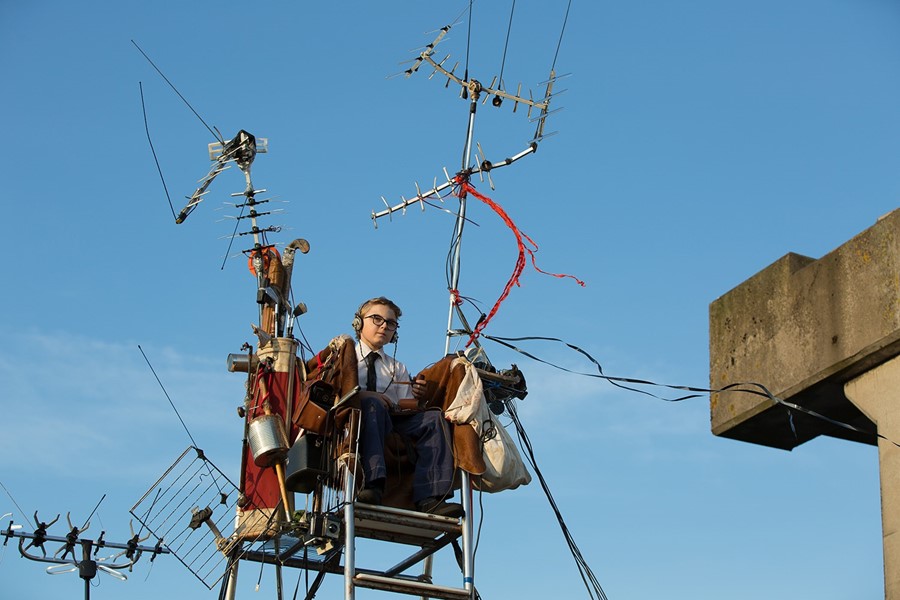The lauded Black Swan composer discusses his latest endeavour, the brilliantly immersive score for Ben Wheatley's High-Rise
It may come as a surprise to learn that Clint Mansell, the British composer behind such iconic scores as Requiem For a Dream, Black Swan and most recently Ben Wheatley's High-Rise, has had no formal musical training. A man whose motto is "feel, don't think", his path into music has been an instinctive one, dating back to his youth in the West Midlands where he would watch Nicolas Roeg films on the BBC and Westerns "with rollicking scores" with his father. "When I first saw Eraserhead by David Lynch, it sort of blew my mind," he recalls. "Back in those days, you didn’t have a home theatre system so I had a VHS copy of Eraserhead and I also had the album so that I could play it on my stereo at the same time as watching the film to get this full on sonic experience from it."
But in spite of this early passion for cinematic sounds, it wasn't until the age of 33, that Mansell finally scored a film for himself. It was 1996, and Mansell, having quit his former band Pop Will Eat Itself, had just arrived in New York in search of new horizons. These presented themselves in the form of a chance encounter with director Darren Aronofsky, then working on his first feature length film Pi, who invited Mansell to write the accompanying score. Suffice to say that Mansell hasn't looked back, spending the last 20 years living in Los Angeles racking up an extraordinarily enviable discography of sublimely experimental soundtracks.
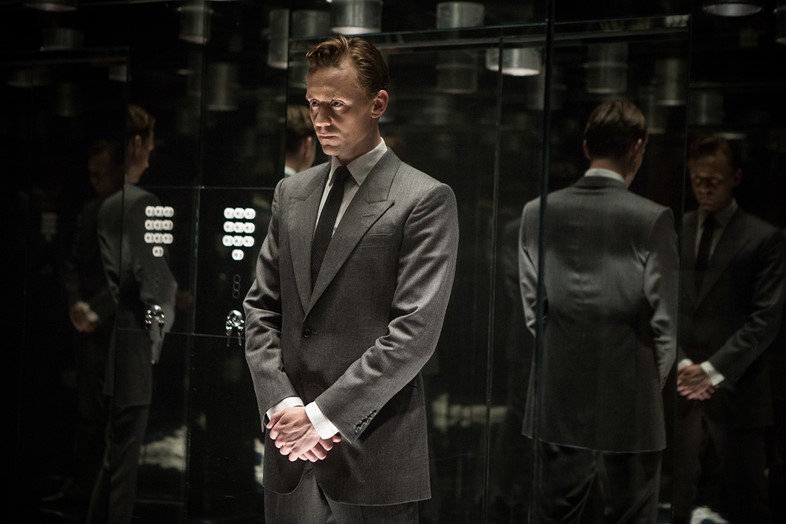
He was a natural fit for High-Rise – Wheatley's adaptation of J.G. Ballard's dizzyingly dystopian novel which hits cinemas this Friday – his undulating, industrial score a key ingredient in the immersive viewing experience. The film follows young aspirant Dr Robert Laing (Tom Hiddleston) as he moves into a luxury London tower block filled with utopian promise. Before long, however, it becomes apparent that class divides are most tangible in vertical form – and as the lower echelons of the building rise up against its creator, architect Anthony Royal (Jeremy Irons) and his beau monde cohorts, utter mayhem ensues. Here, ahead of the movie's release, we sit down with Mansell to talk the importance of following your heart (as well as a strict daily routine), alongside a special, John Peel playlist that inspired the soundtrack.
On what drew him to the film...
"I read the High-Rise book years ago, back when I was at school, and I’ve loved Ballard’s work since that time. Growing up in the West Midlands in the 1970s, there was a very sort of Ballardian look about it that captured my imagination. And then I’ve been a fan of Ben’s work for a long time as well. I think I had talked about him in an interview apparently and then, when he was coming to make his next film he thought, 'oh I’ll see if Clint’s up for it,' and he got in touch. I said 'absolutely' – I didn’t need to think about it at all – I wanted to work with Ben and the fact that it was a Ballard book was even better."
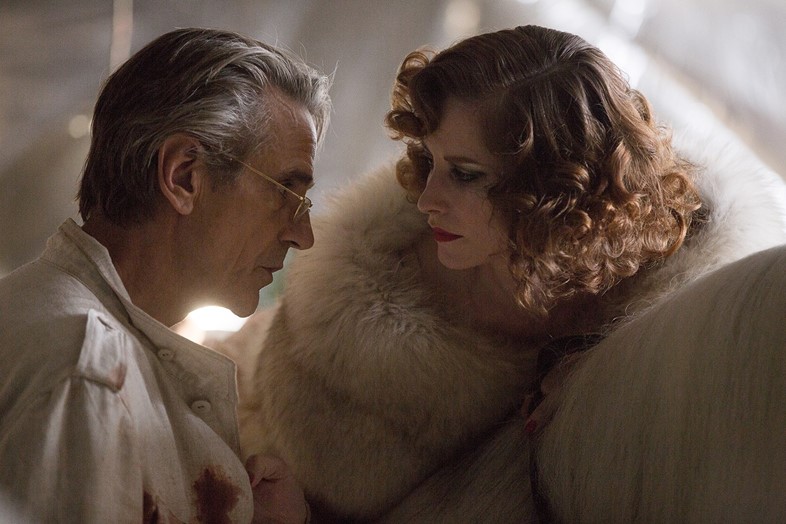
On the scoring process for High-Rise...
"It was a nightmare actually because just after they'd finished shooting, my girlfriend died and I was obviously traumatized. I dropped out of the film, and Ben said that he totally understood. But then I went to meet him – just to talk and to foster the relationship really, hoping that we could work together another time – and he said, 'We’re not under a huge time constraint, what about if we wait for you, if you think that in a few months time you might be ready to attack something?' And that was just magical; it gave me the chance to just be for a while, and to be honest, knowing that I had a project waiting for me, something that I really wanted to do, was just one of the kindest things someone could do for me really. It was an incredible human gesture.
So that obviously hindered our development of the work for a little while. But during that time, I thought about the project and I messed around with ideas and when I came back to it, Ben had got a pretty good edit of the film together and had come up with a lot of ideas musically so we talked about that and then I kind of hit the ground running! It was a really great experience. I was in LA and Ben was in Brighton so I would send him my ideas, as well as the individual stems of the pieces so that he could sort of play with them in the mix. He tried them in different places, and he would send them back to me and I sort of developed them from there. Then he came out here and spent five days with me and we went through the entire thing and by the time he went home the score was basically done – we knew what we needed, what we had, what we didn’t have and it was just brilliant. To me, it was really one of the best experiences I’ve had on a film. It was very collaborative – I think the best collaborations are made when you end up in a place you could never have got to on your own; it’s getting into one another’s DNA if you like."
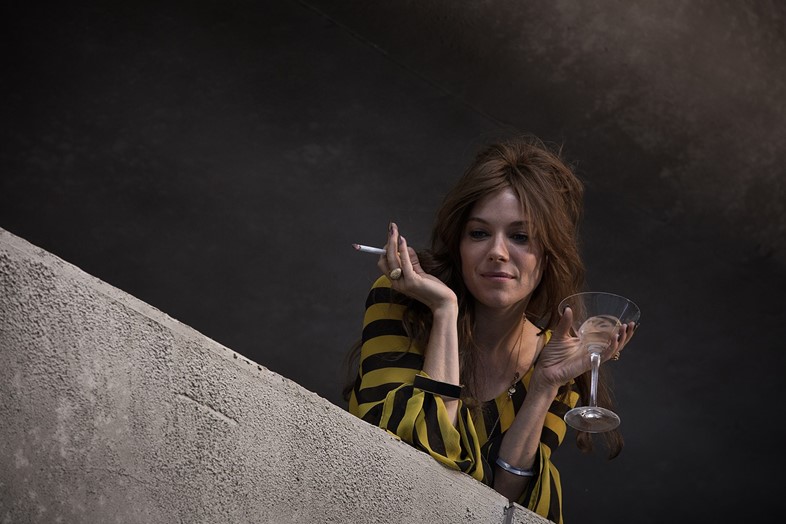
On the joys of research...
"I like to do a lot of research; it gets you in the right mindset. I’m working on something about Vincent van Gogh right now so I’ve read and seen a lot of his stuff to get an insight into what’s going on on screen, and when I did Black Swan, I obviously went and did a lot of research on Tchaikovsky. Then when I start seeing the material, there's still an element of listening to what my gut is telling me but hopefully it's really responding to what I’ve absorbed during my research. It’s one of my favourite parts of the job: I get to sit around reading all day, or watching documentaries and it’s still classed as work!"
On the importance of routine...
"I work best early mornings. I call it 'getting out of my own way' because, as the day progresses, your brain gets busier and you become less connected. This might sound very hippie-dippie but as far as I’m concerned, the score to the film already exists – I’ve just got to channel it and it will be there. But as the day goes on, the left side of your brain kicks in and my thoughts become more intellectually based. So the early mornings are about getting creative and experimenting and the afternoon is for doing the legwork. I think people think these ideas just come to you when you’re lying on a chaise lounge peeling a grape but the reality of it is that you’ve got a deadline and you’ve got to make it happen. Writing is like a muscle, I think: you’ve got to exercise it to make it taught and firm and lean and if you don’t exercise it, it’ll get all flabby and all over the place."
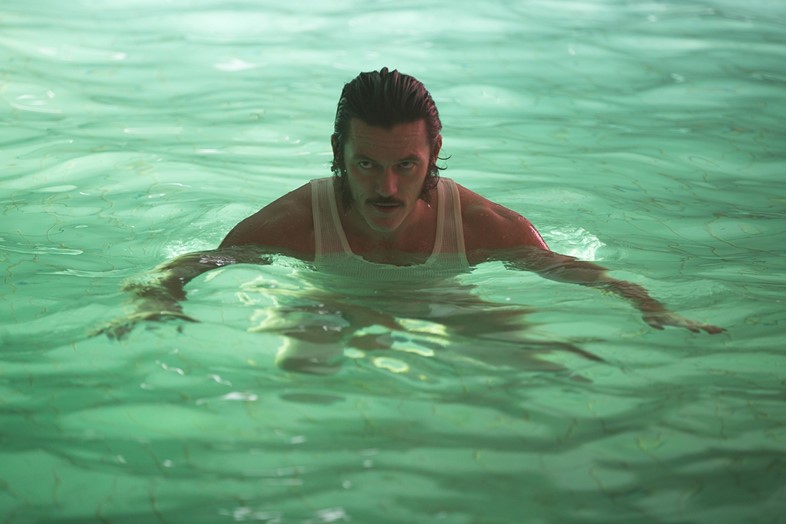
On his advice for aspiring composers...
"I've done a few talks for young composers and I always try to encourage them to be themselves. Anybody can train themselves to be technically good or to get the job done but there is only one you and if you can really tap into what you are, who you are and how you feel, then you’ve got a much better chance of coming up with something that nobody else could come near. And that’s what I’m looking for. I’m not saying, 'oh my work is so original,' I’m just saying that it’s personal; it's me and if someone says to me, make it a bit more like Bernard Herrmann – fuck off! I’m sure Bernard Herrmann didn’t appreciate it if somebody said to him, make it more like Alfred Newman!"
On his favourite soundtracks...
"There is a great scene in The Parallax View where Warren Beatty’s being brainwashed and it's a very middle-of-the-road piece of music but with what’s going on on the screen, it’s a brilliant juxtaposition of the two. I also loved when I heard Tubular Bells in The Exorcist, and then Betty Blue and Blade Runner obviously. But the first real score that really grabbed me was Assault on Precinct 13 by John Carpenter – I had never really heard anything like that before, those sorts of synthesisers. There’s this impending doom, an inevitability that won’t let up – it’s so palpable."
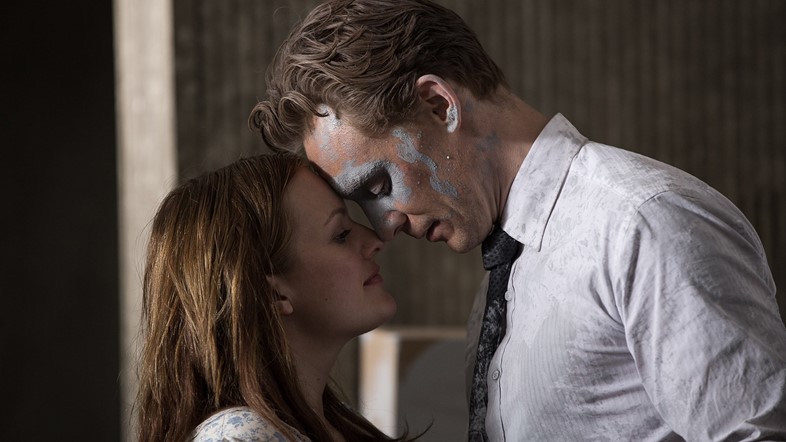
On retaining inspiration...
"If I’m not excited by the film or turned on about it I’m not going to write anything good. If I find the film pedestrian, it just doesn’t get me firing, you know. I’m just not somebody that is like 'oh you need some music' – I’ve got to care or it makes a nonsense of creativity. I’m 53 now and I’m thinking 'oh I'm getting older' but maybe the next ten years might be the most creative years of my life, you know. I don’t want to slip into just getting the job done."
High-Rise is in cinemas nationwide from March 18, when the soundtrack will also be available to purchase. Clint Mansell's UK tour runs from March 23-29, 2016.
